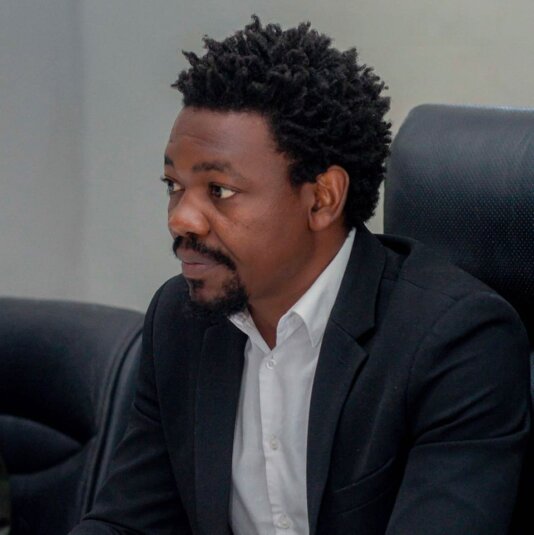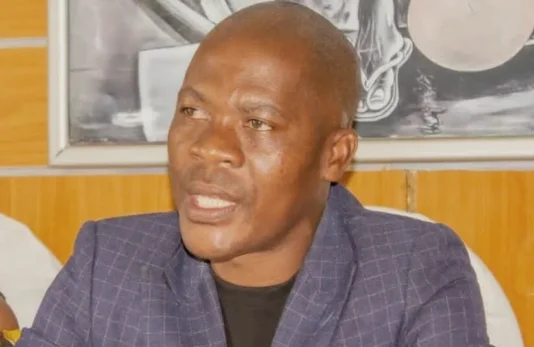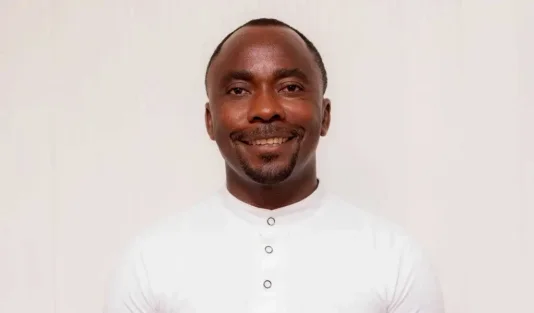- About
- Topics
- Story
- In-Depth
- Picks
- Opinion
- News
- Donate
- Signup for our newsletterOur Editors' Best Picks.Send
Read, Debate: Engage.
| January 18, 2024 | |
|---|---|
| topic: | Refugees and Asylum |
| tags: | #Malawi, #refugees, #asylum seekers |
| located: | Malawi, Democratic Republic of the Congo, Burundi, Rwanda |
| by: | Cyril Zenda |
During World Refugee Day commemorations in 2000, the government of Malawi announced that all refugees and asylum seekers in the country with professional qualifications were free to move out of Dzaleka Refugee Camp and live among locals. The government went on to employ some of these professionals, including nurses, teachers and social workers.
Since then, the refugees have been mingling freely with the local population, a development that resulted in inter-marriages, children being born and both movable and immovable assets being acquired as the refugees settled in the Southern African country.
More than two decades later, in April 2021, the country’s then Homeland Security minister, Richard Chimwendo, took these refugees and asylum seekers by surprise when he gave them a 14-day ultimatum to move back into Dzaleka, the country’s only refugee camp. The refugees and asylum seekers resisted, challenging the order in the courts.
A protracted stand-off between the two sides ensued until May 2023, when the Lilongwe administration decided to enforce the encampment policy by rounding up the long-integrated foreigners and transferring them to overcrowded-Dzaleka in a controversial move that was roundly condemned by human rights groups.
According to Youth and Society (YAS), an NGO operating in the country, under this encampment policy, between May and October some 765 families totalling 2,296 refugees and asylum seekers had been forcibly moved to Dzaleka. The encampment policy targets some 8,000 refugees.
"This relocation has added strain to the already overcrowded Dzaleka Camp, which currently accommodates 52,272 refugees despite its initial capacity of 12,000 refugees when established in 1994," YAS's executive director, Charles Kajoloweka, said in a presentation to the 77th Ordinary Session of the African Commission on Human and Peoples’ Rights about the human rights situation in Africa.
The majority of the refugees in Dzaleka are from the Democratic Republic of Congo, Burundi and Rwanda.
"The government's implementation of the refugee encampment policy and the ongoing relocation exercise have been marred by systematic violations, including the rape of women, loss of property, unlawful detention of children and women, forced and unlawful deportations, extortions, xenophobic attacks by authorities, corruption and robberies targeting refugees and asylum seekers," Kajoloweka highlighted.
The United Nations High Commissioner for Refugees (UNHCR), also condemned the forced relocations, urging Lilongwe to rescind the controversial policy.
"Dzaleka refugee camp already faces challenges as health services, water, shelter and sanitation facilities are inadequate to serve the existing population," the agency said in a May 2023 statement.
"Relocating self-sufficient and productive refugees and asylum-seekers to Dzaleka will only exacerbate these problems as their prospects of rebuilding their lives will dwindle."
Sylvester Namiwa, the executive director of the Centre for Democracy and Economic Development Initiatives (CDEDI), a Malawian NGO that promotes an informed and organised citizenry, said it had tried unsuccessfully to stop the transfer.
"Everything to do with this exercise was barbaric, not befitting a democratic society," Namiwa told FairPlanet.
"In fact, it was a policy inconsistency, because the Malawi government committed in 2019 to a Comprehensive Refugees Framework, that among many others, it was supposed to integrate the refugees and asylum seekers into its national development agenda, the case of [Africa] 2063 development agenda."
Africa Agenda 2063 is an African Union plan to promote the integration and development of the continent, which also involves doing away with artificial borders introduced by Western colonial powers.
Namiwa further said that the government of Malawi, UNHCR and World Food Programme have in the past agreed to a policy stipulating that refugees who demonstrated an ability to provide for themselves would be allowed to live outside the camp.
"Now, the same government overnight overrides its own policy within any iota of the ubuntu. It was strange to see a government that is literally struggling to feed its inmates busy forcing people that were not only feeding themselves, but were able to create the much-needed jobs and also paying taxes, into a camp. It was like committing these people to a death sentence."
In December, Malawi's government terminated its partnership with INUA Advocacy and expelled the NGO from Dzaleka Camp. The fall-out was caused by the non-profit’s work, which saw it compiling a dossier of evidence on the human violations that the government has committed in the process of actualising its encampment policy.
INUA Advocacy chief executive officer, Innocent Magambi, told FairPlanet that the relocation policy has had a profound impact on the lives of refugees in Malawi.
"Starting with the actual arrests of refugees living outside the camp, we have documented numerous abuses such as beatings, confiscation of property, looting and rape […] people are traumatised by how they have been treated and what they have lost," Magambi said.
He said that their expulsion from Dzaleka was a form of backlash for their stance against the violation of refugee rights.
"Our expulsion from Dzaleka is 100 per cent related to our stand for the dignity of refugees and asylum seekers in Malawi," Magambi said.
"We have exposed so many irregularities, some of which have never come to light. Despite the fact that we are not allowed to work in the camp, our stance has not and will not change. We will continue to demand accountability from the government and all other institutions working for the welfare of refugees in Malawi."
Asked how they intend to shift their action plan given the crackdown and expulsion from Dzaleka, INUA’s Magambi said it is 'business as usual,' claiming The NGO has solid infrastructure upon which to continue its work - even from outside the camp.
"We stay in touch with refugees who tell us about abuses that are happening either inside or outside the camp," Magambi said.
"As of today [January 16], we have registered over six cases of assault on refugees operating motorbike taxis, and we have reported the matter to the district police. And yesterday, 15th of January, there was a meeting with the police to find solutions.
"We have facilitated the release of two refugees who were illegally arrested by the police and later today our lawyer will be in court representing a refugee who is threatened with deportation by Malawi Immigration."
Magambi added that for as long as INUA is registered as a civil society organisation in Malawi, the Homeland Security ministry has no power to stop its activities outside the camp.
While many fear that the refugee situation in the country will worsen, the Malawian government insists that it is only restoring 'law and order.'
Image by neiljs.
By copying the embed code below, you agree to adhere to our republishing guidelines.



